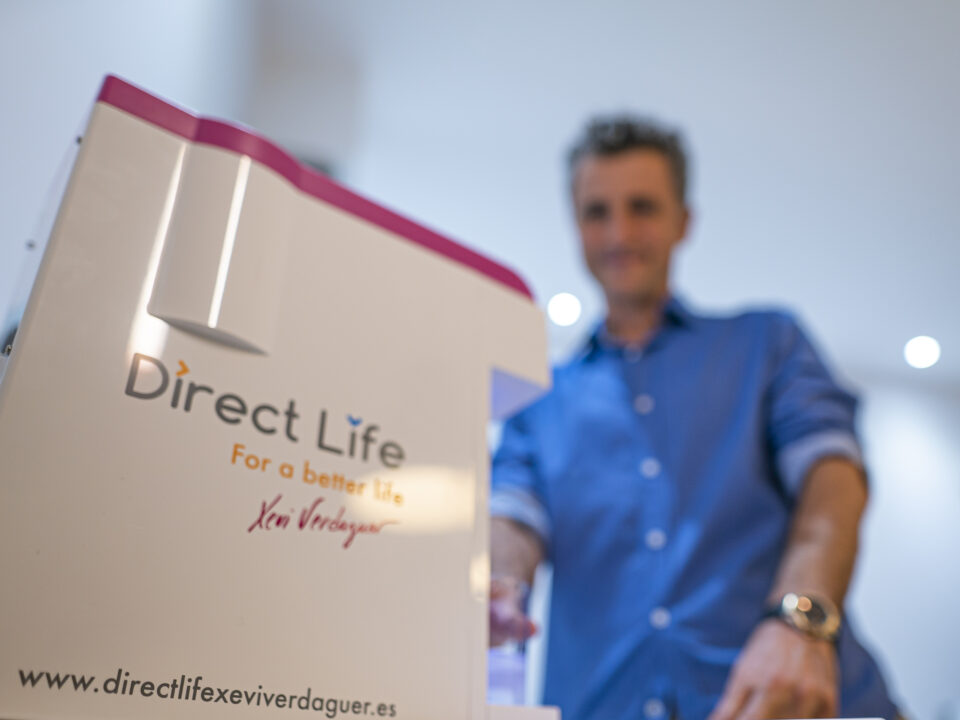
Los efectos del agua hidrogenada
25 noviembre 2020
El hidrógeno molecular como neuroprotector
25 noviembre 2020El envejecimiento es un proceso natural en nuestra vida. Vivimos en un medio con oxígeno y no podemos vivir sin él. Podemos afirmar que la oxidación es una reacción natural y esencial en nuestra vida.
¿Cuándo la oxidación es un problema?, cuando se convierte en un proceso descontrolado que pueda convertirse en una enfermedad. Por ello los científicos llevan años tratando de buscar fórmulas para minimizar el envejecimiento producido por el estrés oxidativo o por lo menos garantizar una mejor calidad de vida dentro de este proceso natural. Después de llegar a muy diversos puntos de vista sobre finalmente la respuestas se redujeron a 2:
Acortamiento de los telómeros de los cromosomas
Los telómeros son la parte final del cromosoma, en cada división celular el telómero se va acortando, de manera que podemos saber el nivel de envejecimiento conociendo el nivel de acortamiento de los telómeros. Hoy en día ya se puede analizar la longitud de los telómeros del ADN y conocer la edad biológica.
Los radicales libres
El estrés oxidativo es un desequilibrio entre nuestra capacidad de generar radicales libres y nuestra capacidad de reducirlos, un desequilibrio en el proceso de oxidación de nuestras células y tejidos. El estrés oxidativo es un síndrome que aparece a menudo con la edad pero también en muchas otras circunstancias que debemos conocer para poder tratarlo y envejecer con más salud.
La oxidación genera los radicales libres que provocan daño sobre nuestras células y sus componentes, lípidos, carbohidratos, proteínas y ADN. Podemos visualizar fácilmente la clásica imagen de de una manzana recién cortado o que hemos comenzado a comer y la dejamos sin acabar. En cuanto entra en contacto con el aire se oxida oscureciéndose.

Los radicales libres fisiológicos tienen efectos buenos y malos y su alta reactividad hace que intervengan en mecanismos de defensa natural contra bacterias, virus y células cancerosas pero, por otro lado, también oxidan lípidos, proteinas y ADN produciendo efectos dañinos.
Dicho esto, el objetivo es controlar que haya un equilibrio entre la producción y la reducción de estos radicales por los sistemas naturales, sobretodo los más potentes y sin funciones fisiológicas.
Los radicales libres forman parte de mecanismos de defensa pero un exceso de éstos están relacionados con enfermedades como Alzheimer, cáncer, arterosclerosis, fibromialgia, enfermedades neurodegenerativas en general y se encuentran elevados en personas con estrés, sobrepeso, procesos inflamatorios, síndrome metabólico, fumadores, etc…
En definitiva, prevenir el estrés oxidativo y el exceso de radicales libres fisiológicos es fundamental en la prevención del envejecimiento y de enfermedades degenerativas.
Causas de estrés oxidativo
- El estrés oxidativo puede tener los siguientes orígenes:
- Radiaciones solares, rayos X, radioterapia.
- Exceso de alcohol, humo de tabaco, pesticidas.
- Contaminación del aire y de los alimentos.
- Malos hábitos alimentarios.
También como apuntábamos en un anterior post también el exceso de deporte crea estrés oxidativo dado que los radicales libres también pueden generarse con la producción de energía. Si esta producción fuera excesiva correríamos el riesgo de generar un desequilibrio y por tanto también estrés oxidativo. Este hecho es frecuente en deportistas profesionales.
Si el estrés oxidativo es responsable de nuestro envejecimiento y sostenido en el tiempo puede provocar enfermedades ¿Podemos medirlo para controlarlo? ¿podemos evitarlo?.
Combate el estres oxidativo de la manera más sencilla y cómoda desde casa
El agua hidrogenada es un demostrado antioxidante que nos ayuda a combatir el estrés oxidativo. Está a nuestro alcance para poder tenerla en casa instalando un verdadero generador de agua hidrogenada.
El hidrogenador de agua Hydron nos proporcionará agua rica en hidrógeno para beber y también para cocinar.
Si tiene cualquier consulta o duda sobre Hydron y el agua hidrogenada no dude en ponerte en contacto con nosotros. Le atenderemos encantados.
Saludos cordiales,



